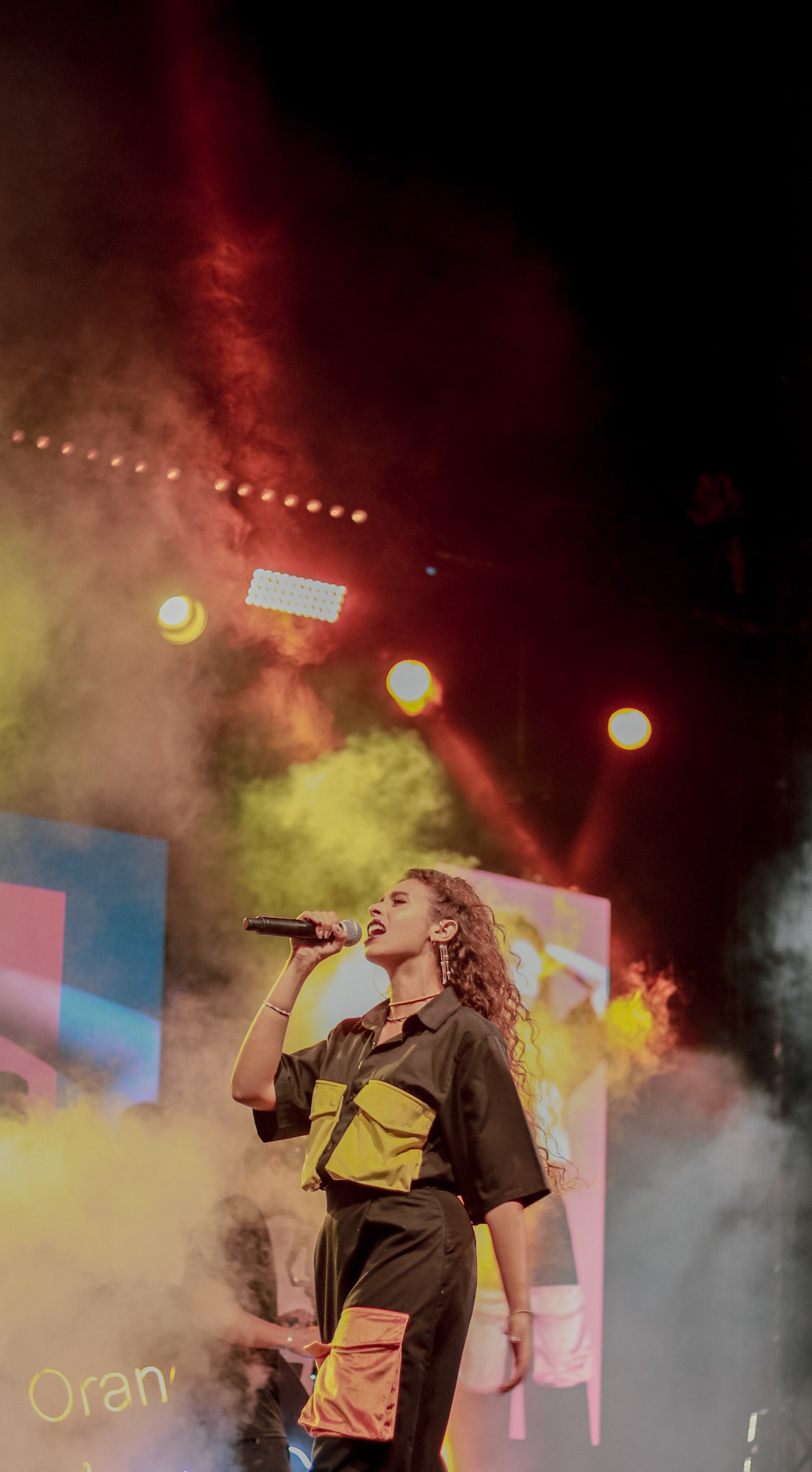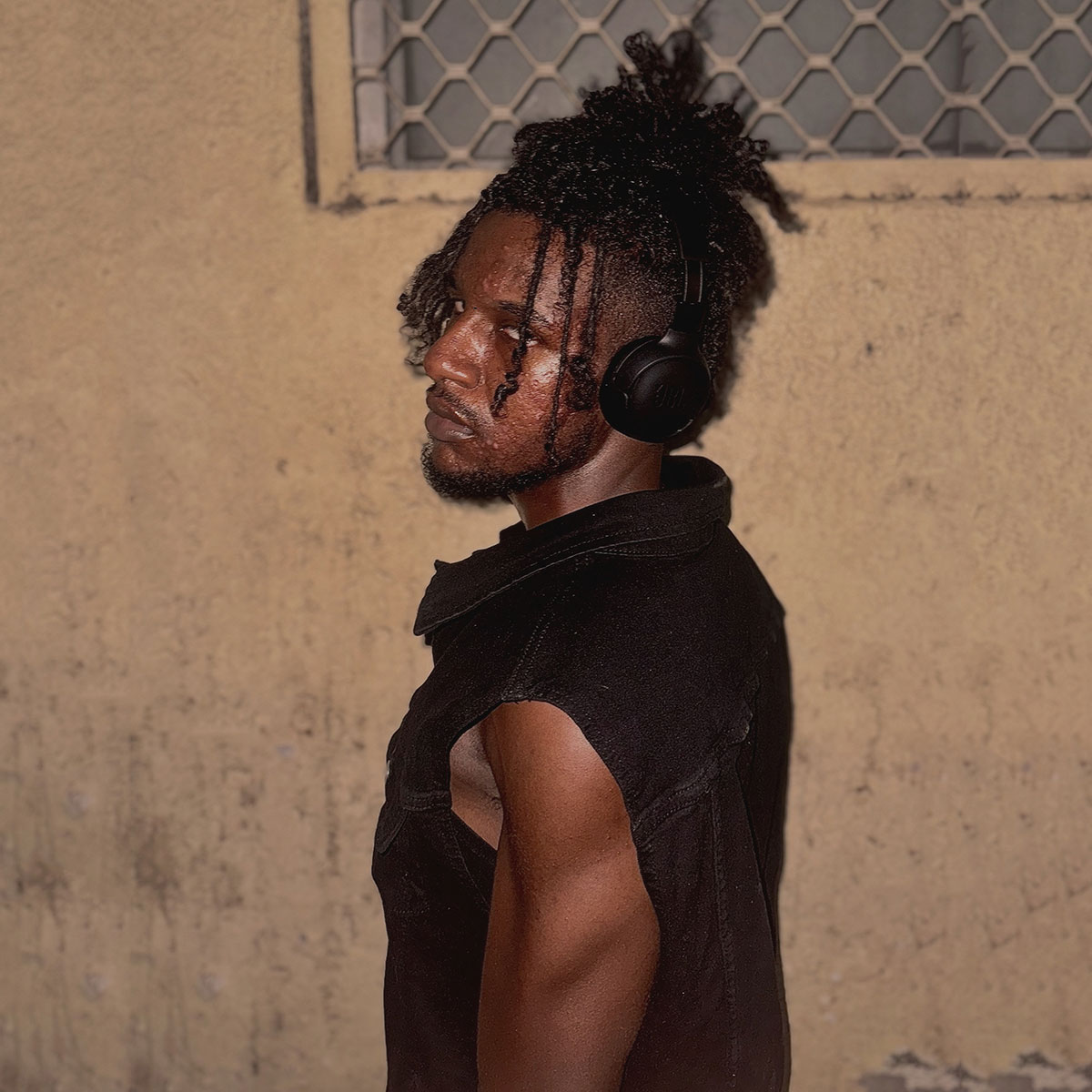By the time Malak Karimeddine had performed in 14 cities as one of the winners of Orange Music Talents 2024, her music had already become more than performance.
It had evolved into an ongoing dialogue — a raw, unfiltered channel for emotion that doesn’t pander to commercial expectations. “My goal is to create music that moves you both emotionally and physically,” she says, with a kind of clarity that’s difficult to dismiss. For an artist unafraid to peel back the polished layers of contemporary music, Malak isn't interested in playing by the unwritten rules of mass appeal. She plays by feeling.

It’s not that she lacks direction or genre — quite the opposite. Her music seamlessly blends Arabic, African, and EDM influences with lyrics that often come from a place of personal vulnerability. But don’t mistake her genre fluidity for aimlessness. “I focus on the emotion first, then let the style follow,” she explains. There’s no strategic checklist for trends here — only a fierce insistence that the music reflect something real.
That realness is her signature. The music industry is allergic to silence but Malak’s power lies in her ability to make space for it — and then fill it with what matters. It’s a particularly bold approach when one considers the relentless pressure artists face to commodify pain. And yet, when she sings about loss, especially in her track Habibi — a tribute to her late father — the grief doesn’t arrive in dramatic crescendos or tear-jerking cliches. It arrives like memory does: layered, enduring, a quiet echo. “It’s not just about grief,” she clarifies.
“It’s also about love that never fades and learning to live with that absence.”
The music industry, with its dazzling lights and insatiable algorithms, has always favored spectacle over sincerity. So naturally, an artist like Malak — with a quiet commitment to integrity — would be as rare as a Wi-Fi signal at a desert rave.
Still, she navigates modern platforms with fluency. Her TikTok performances — including “Ya Lmima” — showcase not just her voice, but her intention. Each cover becomes a personal excavation, revealing something previously hidden in both the song and herself. Social media shapes her process not by amplifying her voice, but by echoing it back through the people who hear it.
Statistically speaking, 73% of independent musicians report experiencing symptoms of anxiety or depression — a reminder that artistry often comes at a mental cost. Malak is aware of this reality and unflinchingly honest about it. “Mental health in music is a crucial yet often neglected aspect,” she says. “Creating music comes sometimes with isolation, immense pressure… Being in tune with our mental state allows us to create authentically and sustainably.” She uses emotional exposure like some use harmony — deliberately, with precision, and without apology.

From a philosophical standpoint, she lives by the principle of temet nosce — know thyself. This isn't tattooed on her wrist (as far as we know), but it pulses through her answers and her creative outlook. She understands that her value as an artist is not in projecting an image, but in reflecting reality — hers and yours. Her emotional clarity and cultural grounding serve as a compass in a chaotic landscape. “I was surrounded by rich customs and inspiring tales of joy, adversity, and resilience,” she recalls. Her music carries the weight of that heritage without ever being burdened by it.
And while Malak’s lyrics often echo solitude, her performances have become moments of unity. She says,
“Even though we each walk on our own path, we’re united… we want to be understood, to belong.”

The clarity in her music leaves no room for instruction; she trusts listeners to draw their own meaning. It’s a poetic invocation of e pluribus unum — out of many, one — the kind of cultural cohesion that transcends borders and algorithms.
Her approach to songwriting feels grounded in experience rather than expectation.
“I see music as a way to make sense of being human,” she says.
The songs sit with the listener the way a long silence does — not to solve, but to stay present. A lyric might not fix a broken heart, but it might let the listener feel a little less broken.

One could draw a loose analogy between Malak’s career and a river — adapting, moving, never stagnant, quietly cutting through whatever terrain it encounters. She doesn't seem overly interested in chasing fame, but rather in remaining faithful to her evolving self. “Being open in my music is healing,” she says.
“I see vulnerability not as weakness, but as strength.”
This philosophy carries into how she balances her mental health, too. “Maintaining balance isn’t just about managing time; it’s about aligning with what nourishes my soul,” she says. It’s a rare form of self-awareness for someone still navigating the early stages of a rising career. She seems uninterested in the grind-for-grind’s-sake hustle that often plagues young artists — perhaps because she knows that speed doesn’t equal direction.

Of course, not everything about Malak’s rise is measured or poetic. Touring, for instance, has been a crash course in adaptation. “Every city and audience brings its own distinct energy,” she reflects. “It reminded me that the real purpose of my art is to touch people beyond the studio, in real moments.” What emerges from her work is less a generational claim and more a collection of unguarded moments many quietly recognize as their own.
And while she speaks about connection with a calm assuredness, her legacy is still a work in progress. “I want to leave behind a sense of authenticity, depth, and creative courage,” she says.
“Songs that made people feel seen, understood, and less alone in their journey.”
That’s not exactly the Spotify algorithm’s top metric, but then again, nothing screams industry breakthrough like the revolutionary idea of... telling the truth.

REGIONAL is musivv’s segment featuring Arab artists in the Middle East. Features under this segment are considered as submissions for nomination under this category in the Musivv Awards’ annual recognition.














